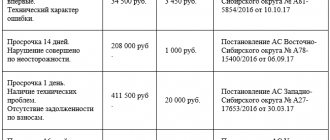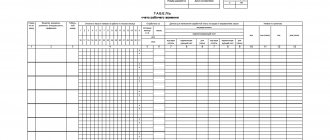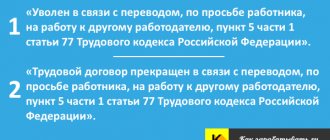Trading without permission entails penalties under administrative law. To carry out trading activities on the street, you must register as an individual entrepreneur or register as a legal entity. The procedure for obtaining permission, the list of required documents, as well as the timing of consideration of the application will depend on the choice of the form of economic activity. Moreover, obtaining a permit for street trading is also influenced by the list of goods that will be distributed.
- Necessary documents Registration of licenses
- Sale of beer
All about trade in Russia
To conduct trade as such, licensing is not required.
According to the current Presidential Decree No. 65 of January 29, 1992, freedom of this activity has been introduced on the territory of Russia. Article navigation
- Trade license
- Trade permit for individual entrepreneurs
- Pyrotechnics
- Food
- Medical products
- fuels and lubricants
- Veterinary preparations
- Jewelry
- Cloth
- Flowers
- How to obtain a trade permit
- How much does a sales license cost?
- What documents are needed
- Outbound trade: permit, documents
- Street vending permit
- Wholesale license
- Wholesale trade of medicines
- Do I need a permit for retail trade and wholesale sales of dietary supplements?
- Temporary trade permit
- What is the fine for illegal trade?
- Fines and punishment for trading without registering an individual entrepreneur
Any legal entity or individual (individual entrepreneur) who intends to engage in trading activities in the Russian Federation is required to obtain the appropriate documents giving such a right, as well as register in the general Trade Register. The process of obtaining this certificate sometimes causes difficulties, mainly due to poor awareness of current legislation. This article will help fill in the gaps.
Business form
We decide on the form of conducting activities. You can become an individual entrepreneur (IP) or establish a trade organization that has the rights of a legal entity. For conducting activities, these forms have positive and negative sides. The package of documents required to obtain a trade permit depends on the chosen type of business.
Whether it is necessary to obtain additional documents largely depends on the choice of the form of activity and the range of goods. Thus, it is easier for individual entrepreneurs to maintain accounting records; they do not need to adhere to the procedure for conducting cash transactions; the entrepreneur has the right to keep all the proceeds. But you shouldn’t be too happy, since individual entrepreneurs are prohibited from trading in alcoholic beverages, and restrictions apply to them.
A legal entity is obliged to hand over proceeds from trading to a banking institution. The advantage is that a legal entity can obtain a trade permit to sell almost any product. The main thing is that the product is not prohibited for circulation in the country.
Trade license
To conduct trade as such, licensing is not required. According to the current Presidential Decree No. 65 of January 29, 1992, freedom of this activity has been introduced on the territory of Russia, and local authorities are obliged to facilitate it, allocate areas for markets, maintain order, and comply with sanitary standards. However, there are a number of requirements that entrepreneurs must adhere to.
A license is a document issued by a special authorized executive body, which indicates the right of an individual entrepreneur or legal entity to engage in a certain type of business, subject to mandatory compliance with legislative restrictions.
The list of goods whose circulation is limited is listed by Federal Law No. 128-FZ of 08.08.01 “On licensing of certain types of activities.” Article 17 of this document defines the areas requiring a trade license:
- Manufacturing, development, sale of special means of covert surveillance and wiretapping;
- Production and sale of counterfeit-proof printed products (forms);
- Sales of weapons, military equipment, small arms, their main components;
- Sale of ammunition, hunting cartridges;
- Distribution of industrial explosives;
- Sale of pyrotechnics that meet state standards of class IV and V;
- Ensuring the circulation of narcotic and psychotropic drugs, including their development, production, purchase, use and even destruction. The circulation of these substances is regulated by Federal Law No. 3-FZ of 01/08/98 (“On Narcotic Drugs and Psychotropic Substances”);
- Sale of electricity to citizens;
- Sales of travel tickets;
- Sales of alcohol and tobacco products.
To this list it is necessary to add some other types of business that can harm the health, rights, and other vital interests of citizens, the country’s defense capability, and the safety of the cultural heritage of the peoples inhabiting the Russian Federation (128-FZ, Art. 4).
A license to sell products whose turnover is legally limited is valid for five years. Its early cancellation is carried out if the subject has repeatedly (more than twice) grossly violated the established conditions and requirements, which is confirmed by inspection reports or by a court, on the initiative of the authority that issued the permit.
Beer trading: operating conditions
In accordance with the law, popularly nicknamed the “beer law,” neither trade organizations with the rights of a legal entity nor individual entrepreneurs are required to obtain a license to trade beer.
A permit to trade beer is subject to a number of conditions, including the following:
- a drink with an alcohol content of more than 5% can only be sold in stores;
- Beer trade is permitted through retail facilities with an area of at least 50 square meters. m. in the city and 25 sq. m. - in the village (it is prohibited to sell beer through small retail outlets);
- ban on trading at night;
- Individual entrepreneurs also need to purchase and register a cash register to sell drinks.
Trade permit for individual entrepreneurs
As of 2021, the procedure for obtaining a permit is as follows: an individual entrepreneur notifies the authorities of his intention to engage in trading activities, accompanies his application with a package of certificates:
- An extract from the Unified State Register of Legal Entities or a certificate of registration of individual entrepreneurs;
- Certificate of registration of individual entrepreneurs with the Federal Tax Service;
- A certified copy of the title document for the ownership of the premises where the sales or lease agreement will be carried out;
- Sanitary passport of the premises of the retail outlet;
- Conclusions of the State Fire Supervision, Sanitary and Epidemiological Service;
- A copy of the waste removal agreement;
- List of goods to be sold;
- If the product is subject to licensing - a license.
It should be noted that it is easier for an individual entrepreneur to obtain a trade permit than for a legal entity.
It is necessary to dwell in more detail on the licensed types of business activities.
Pyrotechnics
The most important thing that an individual entrepreneur who decides to sell firecrackers, firecrackers and firecrackers should know is that the sale of household pyrotechnic products of hazard class I-III is not subject to licensing.
At the same time, he must comply with the rules of trade in fireworks, as well as standards for their storage. They are set out by Decree of the Government of the Russian Federation N 1052 of December 22, 2009, as well as by the Customs Regulations of the Customs Union.
The sale of products of higher hazard classes (IV, V), capable of creating a shock wave with a danger zone radius of over 30 meters, requires licensing.
Food
A license to trade food products, according to the already mentioned Law No. 128-FZ, is not required, however, the entrepreneur should pay attention to the obligation to notify the administration about the start of this type of activity. The permission of Rospotrebnadzor is also not formally needed - this organization simply needs to be notified, but the conclusion of the SES on the compliance of the point with the established sanitary standards is necessary.
Regardless of the nature of the food products, the seller must have documents confirming their good quality (certificate, declaration of conformity for each item), which must be received along with the goods from the supplier. Representatives of such types of business as the sale of sweets in a shopping center on the “island”, fast food, and other public catering must be prepared to check the sanitary conditions of food preparation.
SES inspectors also check the expiration date (in cases of canned food, concentrates, baby food or other shelf-stable products) and compliance with organoleptic standards.
As with other food products, no special permit is required to sell fresh meat, but if it turns out that there are violations (lack of sanitary books, certificates, veterinary form No. 4, refrigerators, stamps), then troubles for the seller are guaranteed.
Selling on the street, including fruits and vegetables from a car, requires the consent of the local administration. This is dictated by quite reasonable considerations: firstly, the authorities are obliged to ensure the safety of citizens, therefore it will be mandatory to check SES products. And secondly, selling is not appropriate everywhere. In other words, the retail outlet should not interfere with transport and people.
Food products also include tobacco products and alcohol. The entrepreneur will find out where to buy a license for the right to sell them (it is needed for this case) from the executive authority in charge of this issue.
Trade scales CAS PR-15В
Reliable, functional and inexpensive scales for retail. Steel coating, keyboard for cost calculation, mains or battery operation. Possibility of connecting a USB port. Price 7907 rub.
Go to product
Medical products
This concept includes not only medicines, but also medical equipment, as well as various equipment and auxiliary items. Based on this division, it is determined whether a license is needed to sell a particular product. All pharmacological products are subject to mandatory licensing. But there are features due to changes in current legislation. For example, the sale of medicines outside of stationary retail outlets or by peddling is prohibited. A license for the sale of medical equipment is not required (Law N 128-FZ dated 08.08.01), but licensing is required for its maintenance (except for those intended for the own needs of a legal entity or individual entrepreneur). In any doubtful case, it is best for the owner of a retail outlet to consult a lawyer.
fuels and lubricants
The procedure for selling fuels and lubricants is difficult to determine. Law No. 99 of 05/04/11 states that it is possible to sell fuel and lubricants without a license, but, as Rostechnadzor explains, if gasoline or diesel fuel is stored or transported, then it is needed. In addition, this is an excisable product, including for individual entrepreneurs, but only when carrying out export operations.
Veterinary preparations
Medicines intended for animals are classified as pharmacological products; their sale is subject to licensing (Government Decree No. 1081 of December 22, 2011). You should contact the local representative office of the State Agricultural Surveillance or, if the medicinal products will be used by the veterinary service, then the Federal Service for Veterinary and Phytosanitary Control.
Trade in veterinary drugs without a license entails liability provided for in part two of Article 14.1 of the Administrative Code. One of the conditions for obtaining a permit is the presence of special education.
Jewelry
The sale of jewelry does not require licensing, but this does not mean that the state does not control it. The role of the permitting document is played by the Assay Card with a notification of special registration with the State Property Inspectorate under the Ministry of Finance of the Russian Federation. To obtain these papers, a minimum of formalities is required; in addition to the standard package of papers, you need to write an application with the appropriate content, provide an opinion from the Private Security Department, confirm the presence of a safe, and register on the Rosfinmonitoring website.
Useful links for entrepreneurs selling jewelry:
Aurora Necklace
Silver chain with a stone made of artificial material. Unusual colorful appearance. Chain length 55 cm. Price 750 rub.
Detailed description
Pearls with pendant
Gift set – natural pearls in a shell + pendant. One of the most unusual and beautiful gifts on Aliexpress. Price 300 rub.
Detailed description
Bright rings
Women's silver rings with topaz stone. There are 10 colors and 8 sizes to choose from. Weight – 2.3 grams. Discounts for wholesale buyers. Price 160 rub.
Detailed description
Cloth
This type of business activity does not stand out with almost any special features. You can find out what documents are needed to sell clothes when registering a retail outlet at the tax office. The specificity is expressed in three points :
- The need for a conclusion from Rospotrebnadzor on the safety of products due to direct daily contact with the consumer’s skin (such a certificate is also needed for the sale of shoes);
- Sellers must have medical records;
- Quality certificates are required only for children's clothing.
Useful links for clothing sellers:
Women's pullover
Knitted pullover with long sleeves. There are 10 colors to choose from. Season: autumn-winter. Material – cotton. High-quality tailoring and material. Price 665 rub.
Detailed description
Man's T-shirt
Men's V-neck short sleeve T-shirt. Material – polyester and cotton. Available in 10 colors. Brand MRMT. Price 315 rub.
Detailed description
Child dress
Festive dress for girls. Decorated with lace. Length – ankle length. There are 6 colors to choose from. Material – chiffon, polyester, spandex. Price 725 rub.
Detailed description
Flowers
No special permit is required to sell flowers. A regular package of documents is required that meets the requirements of Federal Law N 381-FZ, a general permit to conduct business activities, and a conclusion from the sanitary and epidemiological station.
Taxation and reporting
The taxation procedure is chosen by the participant in trading activities at the stage of registration as a legal entity or individual entrepreneur. So, in 2021, participants can use the following taxation methods:
- Carrying out activities on the basis of a received patent . A patent is permission to trade, granted for a limited period of time. Typically, this duration varies from six months to 12 months. Payment of the cost occurs when registering a patent, therefore, in the future, when carrying out trading activities, there is no need to transfer tax to the state. On the one hand, this is beneficial, but on the other hand, the legal entity will have to immediately find a large sum to pay for the cost of the patent.
- A simplified taxation system is the most profitable option for small entrepreneurs and individual entrepreneurs. The advantage of this method is that the legal entity pays tax only from the profit amount. First, the total amount of income is calculated, from which expenses are calculated. After this, tax is calculated from the difference received. In this case, the tax is not very high, but the individual entrepreneur will have to regularly prepare certificates, calculating profits and expenses.
- Fixed tax, which is the same for all retail outlets . The amount of deductions is calculated based on the location of the retail outlet, as well as the area of the retail stall.
How to obtain a trade permit
To obtain the right to trade, an entrepreneur must complete the following procedure:
- Submit a notification application to the local office of Rospotrebnadzor;
- Coordinate the territorial location with the administration of the locality;
- At the sanitary and epidemiological station, obtain a conclusion on compliance with sanitary and hygienic requirements;
- Obtain a safety report from the fire inspectorate;
- If the product is subject to licensing, get it.
How much does a sales license cost?
Since there are quite a lot of licensed types of goods, and the sales process is most often accompanied by other actions that also require licensing (storage, transportation), it is not possible to list all state duties in a short article.
As an example, some of them can be cited:
- Retail sales of alcoholic beverages will cost 65 thousand rubles annually or 325 thousand rubles. immediately for five years (clause 94, clause 1, article 333.33 of the Tax Code);
- The price for a license giving the right to carry out activities in the pharmaceutical field is from 45 thousand rubles. It is considered indefinite.
In this case, you should take into account the strict rules for providing permits, which are indicated separately in each case.
Sales of food products
Do I need to obtain a permit to sell food? The Licensing Law establishes that a license to trade such goods is not required. But the Government Decree “On the notification procedure for starting certain types of business activities” obliges the entrepreneur to send a notification and a package of documents to the Rospotrebnadzor unit before starting work.
The conclusion of the sanitary and epidemiological service on compliance of activities with sanitary standards is mandatory. Trade in specific types of products also requires certificates and declarations of conformity, which must be provided by the product supplier.
What documents are needed
The issuance of a permit indicating registration in the Trade Register is possible after submitting the following set of documents:
- Foundation agreement legal persons, individual entrepreneur registration certificate or extract from the Unified State Register of Legal Entities;
- Certificate of registration with the Federal Tax Service;
- Personal data of the manager, chief accountant, bank details (for legal entities only);
- A document of title on the ownership of the premises or a lease agreement;
- Sanitary passport of the premises;
- Conclusions of the fire service, SES;
- Garbage removal agreement;
- Expected assortment.
Opening of a non-stationary retail facility
Non-stationary retail outlets - that is, pavilions, kiosks, counters without a foundation - are also placed on the street only in specially designated areas with the permission of city authorities. Non-stationary objects are sometimes rented in shopping centers, but then only the permission of the owner of the premises is required.
It is necessary to conclude an agreement with the city administration for the placement of a non-stationary facility. As a rule, this is a competitive or auction procedure. Simply put, the administration enters into an agreement not with everyone, but with those who offer the most favorable conditions (land rental payment) in a specific location.
You should follow the information about competitions and auctions on the local administration website.
Outbound trade: permit, documents
Outbound trading refers to the sale of goods from a car (automatic shop) or from a tent installed temporarily, as a rule, in settlements remote from the supplier. Wherein:
- The place of sale must be equipped with a sign indicating the enterprise and its address;
- For food products, a permit from the SES and a certificate of conformity are required;
- The forwarder must have shipping documentation;
- The place of sale of the goods is agreed with the local administration, as indicated on the page of the issued permit, upon receipt of which a fee is paid. How to get it has already been described above;
- Sellers must have health certificates (if the nature of the goods requires them);
- It is necessary to comply with sanitary standards provided for by well-known rules (garbage cans, hygienic surfaces);
- In the case of selling licensed products, sellers are required to present a license to representatives of regulatory authorities.
Street vending permit
Part of the question of whether it is possible to sell on the street has already been discussed, as well as the limitations of this type of sales. Stalls, tents, counters installed on the sidewalk can create significant obstacles to the population and transport, so their installation locations must be agreed upon with the administration, which is documented in the appropriate document. Street trading in an unspecified place is prohibited, and fines are applied to violators, as well as for failure to comply with sanitary standards.
Without permission, an individual entrepreneur or a registered taxpayer can sell goods on the territory of specially designated areas. We mentioned earlier what documents are needed to trade on the market - these are TIN and OGRN certificates. Of course, you will have to pay for the right to use the trading place and scales (if they are needed).
Notice of commencement of activity
In any case, regardless of what products an entrepreneur or LLC intends to sell, he must notify the local municipality about it. We described in detail how to do this in the section “Required package of documents to obtain a license.”
In fact, this is not a permit to trade, but a notification of the start of activity. However, failure to do so may result in administrative penalties. It is better to protect yourself from problems and send a notification through the “Public Services” portal.
Submission order
You can submit a notification to start trading in two ways:
- In person, to the trade department of the local administration. You can first consult with specialists, prepare a set of documents in paper form and take it yourself/through a representative/send by mail with a description of the attachment.
- Electronically, at State Services. The user must have a personal account (it will be useful in future work). The electronic application form is filled out and scanned documents are uploaded.
Entry into the register takes 5 working days.
Seller's liability for lack of permission
Depending on the severity of the violation, several types of penalties are provided. The most common is a fine. If regulatory authorities detect that a retail outlet is operating without the permission of the SES, they will immediately close the store. The entrepreneur will suffer large losses from stopping the business and receive a large fine. Selling illegal alcohol and working without a cash register can have more serious consequences. Fines here can reach several million rubles.
Wholesale license
In addition to retail sales, there is also wholesale. Wholesale sales of goods subject to licensing must be carried out only with its availability. This applies to the sale of products such as alcoholic beverages, tobacco products, fuels and lubricants, weapons, and other special items. When issuing a license for wholesale distribution, the seller’s storage, security and other important factors are taken into account. The duty, of course, is more expensive than for retail sales.
Wholesale trade of medicines
This type of sales, according to Federal Law No. 323-FZ dated November 21, 2011, requires a license for pharmaceutical activities. This procedure applies to retail and wholesale. A pharmaceutical license is issued by the Federal Service for Surveillance in Healthcare and Social Development, for which a standard set of papers is provided. In this case, the enterprise must ensure the fulfillment of a number of strict conditions:
- Availability of retail (warehouse) premises of sufficient space, owned or leased;
- Medical organizations need a license to provide medical services;
- The manager must have a specialized medical education, more than 3 years of experience, and a certificate of advanced training. If this is not the case, then the requirement for experience in performing similar duties is increased to five years.
In the case of trade in pharmaceutical products for veterinary purposes, the requirements are the same. The difference between how a license for retail trade and wholesale is issued is only in the physical volume of warehouse space that allows storing medicines and medical products.
Do I need a permit for retail trade and wholesale sales of dietary supplements?
As stated earlier, licensing is required only for goods listed by Federal Law No. 128-FZ of 08.08.01. It should be remembered that trading in dietary supplements does not require separate certificates. Biologically active substances are essentially food products, so their sale is not subject to licensing for pharmaceutical activities. Retail trade, like wholesale, can be carried out according to general principles.
Features of certain types of trading operations
An entrepreneur sells certain goods in various places. Therefore, based on the type of trading activity, the supervisory authority sets special requirements.
Street trading is especially popular among entrepreneurs. To obtain permission, you must add to the main package of documents a diagram or plan of the area where the trading place is located. If hired employees will sell products, you should register with the Pension Fund and the Social Insurance Fund.
If the review is positive, ten days later the entrepreneur is issued a passport for the facility and a license.
Special sales rules are established by law for beer. Obtaining a permit is subject to a number of conditions:
- beer is sold exclusively in stores;
- ban on selling drinks at night;
- Beer sales are permitted only with a cash register.
The law establishes that it is not necessary to obtain a license to trade food products. However, government regulations stipulate that permission must be obtained to start trading. It is important to have a conclusion from the sanitary and epidemiological service, as well as certificates and documentation of product conformity.
External trade also requires a special permit. The main documents should be accompanied by a vehicle passport and approval from the authorities.
Temporary trade permit
It often happens that the sale of a product is seasonal and does not require a stationary outlet or store (for example, Christmas trees, fruits, vegetables). The sale of such products from tents and car bodies must be carried out at designated places, and the seller only needs to have a temporary permit issued by the administration of the locality.
Most often the police have to present it - other inspectors usually do not even have time to pay attention to such a retail outlet. In its essence, temporary entrepreneurial activity is similar to traveling business, and in most cases it is the same.
What do you mean by street trading?
The sale of finished products outside of stationary premises from a car, tray or tent in areas designated by the authorities is called street trading. But there is no need to include trade in products grown in their dachas, when pensioners sell vegetables from their gardens.
No one will even argue that buying products on the street is convenient for everyone: the buyer does not waste time going to the store, and the cost is sometimes significantly lower than for similar products in the store.
Street trading is common in many European and Asian countries: you can buy a souvenir or ice cream.
What is the fine for illegal trade?
Illegal trade refers to commercial activities that the entrepreneur did not notify the local administration and tax authorities about.
Any person selling goods on the street, regardless of whether he is registered as an individual entrepreneur, makes transactions with buyers. Of course, we are not talking about one-time cases that occasionally take place in spontaneous flea markets, but about actions performed with the aim of systematically generating income. Selling goods without documents in a price range of 500-2000 rubles. without permission and notification of the authorities entails the following administrative and legal consequences provided for in Article 14 of the Code of Administrative Offenses of the Russian Federation:
- Fine imposed by a magistrate’s court on an individual: 2,000 – 2,500 rubles;
- For an official: 4,000 – 5,000 rubles;
- Organizations: 40,000 – 50,000 rub.
In particular,
- Conducting business activity without registration (including street sales) – a fine from 500 to 2000 rubles;
- Responsibility for trading without a license, if its availability is mandatory (for example, alcoholic beverages) - a fine of 2 to 50 thousand rubles. with confiscation of goods;
- Violation of licensing conditions - a fine from 1,500 to 40,000 rubles;
- The same, but in rough form - a fine from 4 to 50 thousand rubles. with deprivation of the right to engage in individual entrepreneurship for a period of up to three months.
The right to draw up a protocol on an administrative offense is enjoyed by employees of the patrol service, tax inspectorate, inspectorate for trade and quality of goods, consumer protection and antimonopoly structures.
Affects everyone
One of the most discussed changes that became mandatory in retail were the following rules:
- Residents of Russia will not have to pay for the delivery of low-quality goods to the seller in the event of a return, since the return of low-quality products is always carried out at the expense of the seller;
- sellers are obliged, in the event of a claim, to send the consumer a response regarding the stated requirements;
- It is allowed to take photographs of goods in stores. Except for places that are not intended for free access by consumers, it is not allowed to restrict the rights of buyers to search and receive any information about goods;
- when selling goods using vending machines, the buyer must see information about the name, opening hours, contact numbers and address of the seller, rules for using the machine, and the procedure for returning funds if the goods were not issued;
- At a gas station, the buyer can request a copy of a document that will confirm the quality of the fuel. It must indicate information about the name of the manufacturer, the tank farm and the actual address from which the fuel was shipped.
Checks must now include everything
This important innovation comes into force on February 1, 2021. From this date, for individual entrepreneurs who apply special tax regimes and are required to use cash registers, the list of required details in the cash register receipt will be changed. Entrepreneurs will have to include in the check the name of the product, work, service (GWS) and their quantity.
For organizations and individual entrepreneurs on OSNO, the requirement to indicate this detail is already in effect.
Please note that for the absence of mandatory details in the check, the individual entrepreneur and the organization will be fined 5,000-10,000 rubles, and the official - 1,500-3,000 rubles.
Changes in catering
At the end of 2021, the Cabinet of Ministers of the Russian Federation approved the changes proposed by Rospotrebnadzor in the work of public catering.
Thus, from January 1, 2021, catering establishments are required to indicate in the invoice the prices indicated in the menu or price list. In practice, this means that establishments now do not have the right to add any commissions or surcharges to the check without the client’s consent. This rule also applies to tips.
If, for example, the establishment nevertheless included a service fee in the check without the visitor’s consent, he has every right to either refuse to pay for the imposed services or demand a refund of funds already paid.








